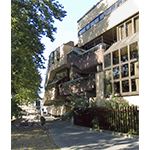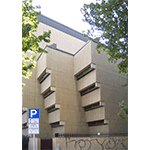Archivio di Stato di Firenze [Florence State Archive]
The Florence State Archives contain documents that date from the year 726 to the 20th century. Since medieval times, the documentary sources of the Florentine Republic had been collected in the Reformation Archives and the Fiscal Archives, which included the Archives of the Chief Magistrate, the Captain of the People, the Chamber of the Commune, the Assessments and the Land Office, relevant first to the Republic of Florence and then to the Grand Duchy. To these was added in 1569 the General Archive of Contracts, instituted by Grand Duke Cosimo I for the "Old State", in which were kept the notarial protocols compiled from the years of the Republic to the time of the Lorraines. In 1778 Grand Duke Peter Leopold instituted the Diplomatic Archives, in which all of the parchments from the central and peripheral offices of the Grand Duchy were collected. From 1778 up to the time of French domination, a slow process of distributing the archives of the Republican and Medicean magistratures into groups managed by different bureaus took place All of these archives thus had separate administrations and seats with their own staffs until 1852, when the Central State Archives were instituted, uniting them under a single organisation, with the exception of the General Archive of contracts, which remained an independent body serving the function of control over public notaries.
At present the State Archives are subdivided into four sections which include the main Florentine repositories. Among the documents of technical-scientific interest are, for the Medicean period, the "Registration of fortresses and buildings" repository, relevant to the administration and maintenance of palaces, villas and later of military constructions; the accounting records of the mines managed by Cosimo I and his successors up to the 16th century; the documents of the "Ironworks and administration of mines and foundries", which from around 1540 to 1835 held a monopoly on the production of iron. For the Lorraine period, we find the repository of the "Chamber of communities, religious sites, roads and rivers", whose functions were similar to those of the Bureau of Canals in Pisa, and the papers of the "Register of royal buildings, fountains and gardens", which demonstrate, after the Medicean age, the vitality of this bureau, which was also made responsible, starting in 1765, for supervision over the grand-ducal gardens.
****************************
Texts by Anna Toscano
English translation by Catherine Frost
Last update 21/feb/2008





